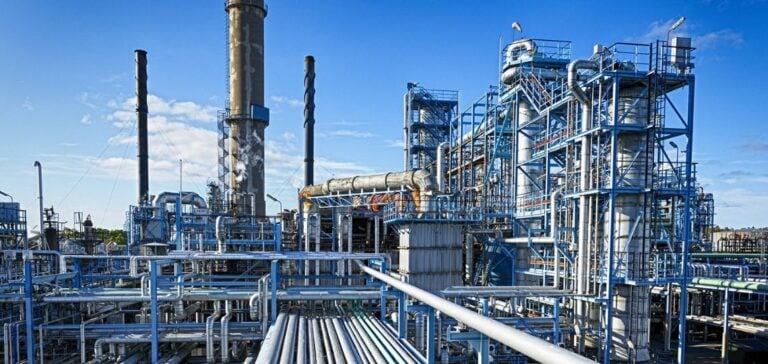The commissioning of the Dangote mega-refinery marks a significant turning point in Nigeria’s energy sector.
After several years of work and delays, this infrastructure, the largest on the African continent, is now producing and distributing gasoline.
With a capacity of 650,000 barrels per day, the refinery aims to meet the country’s energy needs, while offering the possibility of exporting part of its production.
The project, which required an investment of $20 billion, represents a crucial step for Nigeria, which until now has depended on imports for almost all its fuel.
The refinery is located over 70 kilometers from Lagos, the country’s economic capital.
The start-up of production was marked by the dispatch of 500 tanker trucks by the Nigerian National Petroleum Company(NNPC), which transported 25 million liters of gasoline.
The moment was hailed by the Minister of Finance, Wale Edun, who described the event as historic, underlining the importance of this achievement for Nigeria’s industrialization.
He declared,
“Today we have taken an important step towards energy self-sufficiency in Nigeria.”
A difficult economic context
Despite the refinery’s promises, Nigeria’s economic context remains worrying.
The country, which is Africa’s leading oil producer, faces major challenges, not least inflation, which topped 33% in July.
Nigerians were recently confronted with a significant rise in gasoline prices, from less than 200 naira to 850 naira in a year and a half.
This increase was exacerbated by President Bola Ahmed Tinubu’s decision to end fuel subsidies, a move which led to a threefold increase in pump prices.
Expectations for the Dangote refinery are high, but uncertainties remain as to its ability to stabilize fuel prices.
Chronic gasoline shortages have long been a problem for the country, and the commissioning of this refinery is seen as a potential solution.
However, recent price adjustments raise questions about the real impact of this new infrastructure on the local market.
The challenges of energy self-sufficiency
The commissioning of the Dangote refinery is also a key element in Nigeria’s quest for energy self-sufficiency.
The country has four state-owned refineries, none of which are currently operational.
Dependence on fuel imports has repercussions on the national economy, and the refinery could play a crucial role in reducing this dependence.
By producing locally, Nigeria could not only satisfy its domestic needs, but also strengthen its position on the regional market.
Aliko Dangote, who heads this ambitious project, is recognized as Africa’s richest man.
His conglomerate, active in various sectors such as cement and fertilizers, has invested heavily in the refinery.
Growth prospects for the Nigerian oil sector are promising, but depend on the refinery’s ability to operate efficiently and meet market needs.
Production to watch
Gasoline produced by the Dangote refinery should be available at the pump from October 1.
This launch is eagerly awaited by Nigerian consumers, who are hoping for an improvement in fuel supply.
However, the current economic situation and fluctuations in oil prices on the world market could influence the dynamics of production and distribution.
The energy management challenges facing Nigeria are complex.
The commissioning of the refinery represents a significant step forward, but it must be accompanied by measures to stabilize prices and guarantee reliable supply.
Market players and consumers alike are keeping a close eye on this situation, which could have long-term repercussions for the Nigerian economy and the daily lives of its citizens.






















